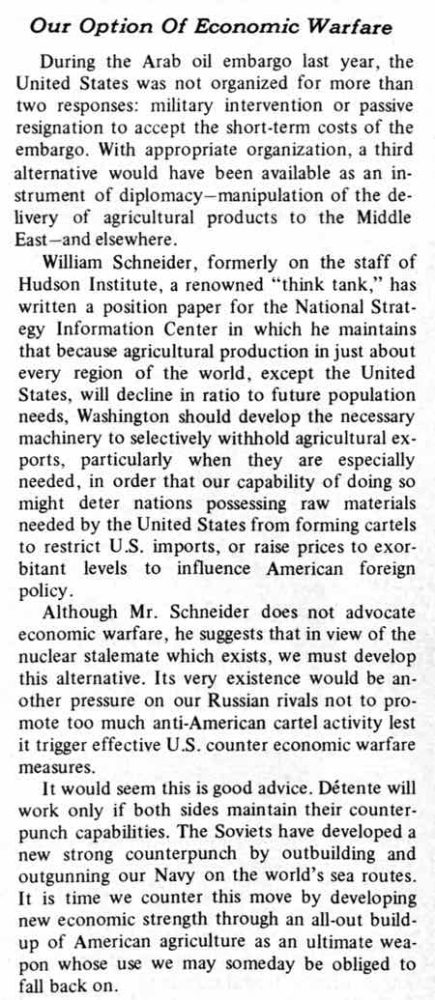Strangling Instead of Shooting: Waging War by Embargo
If you’re old enough to remember 1973, you might recall those long lines of cars that began forming at gas stations that fall.
These lines were the result of the oil embargo — 44 years ago this month — against the United States, the United Kingdom, Canada, Japan, and the Netherlands, imposed by the Middle East nations of the Organization of Petroleum Exporting Nations (OPEC), who were angered by the Western nations’ support for Israel during the Yom Kippur War.
So in October 1973, OPEC cut oil production by 25 percent and reduced their exports to NATO members in Europe. They cut off all oil exports to the U.S. The embargo would be lifted, they said, when Western nations pressured Israel to return land it had captured during the war and a process to restore peace in the Middle East had begun.
The embargo’s effects were immediate. Oil rose to $5.11 a barrel, an increase of 70 percent. By the following June, it reached nearly $12 a barrel.
America still produced most of its own oil, but even the 15 percent loss of its Middle East fuel was felt across the country. Pump prices rose from 38.5¢ to 55.1¢ a gallon. The drop in supply meant gas stations frequently ran out of fuel, leading to long lines of cars and their panicked drivers.
Although OPEC dropped the embargo in April 1974, after President Nixon pressured Israel to withdraw from some of its conquered territory, Americans realized firsthand what a powerful tool embargoes could be. In 1975, The Saturday Evening Post suggested in “Our Option of Economic Warfare” how the U.S. could apply its own economic leverage to resolve international issues.
The idea was tried out when America placed a grain embargo on the Soviet Union in response to its 1979 invasion of Afghanistan. Unfortunately, the U.S. was then acting alone. Russia readily obtained the grain it needed from other countries, while American farmers suffered a drop in prices.
The U.S. was more successful with later embargoes. By limiting exports, restricting business and economic aid, or freezing assets, it has pressed reforms on countries that sponsor terrorism, violate human rights, or develop nuclear weapons.
These economic pressures led to Iran agreeing to curtail its nuclear weapon program. They have also created hardships for North Korea, though at this date, it’s uncertain that embargoes will successfully yield change.
